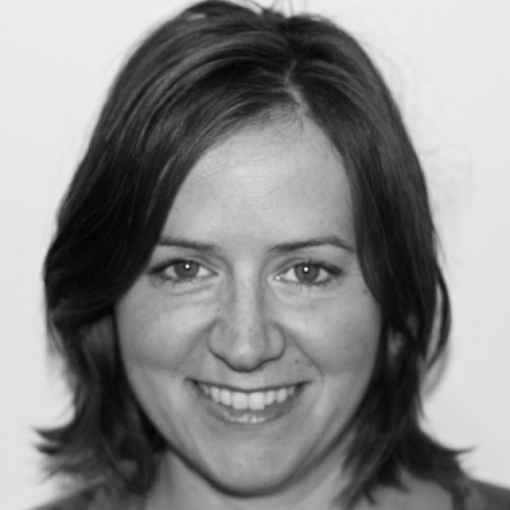PhD in Neuroscience, Queensland Brain Institute, University of Queensland (2012)
| Research and Design Director | |
|---|---|
| Avegen | |
Year entered into a non-academic position: 2017
My research training set me up to…. critically deconstruct a problem to its bare components, then design data-based solutions and track whether the solution proved effective.
What’s your background?
After my Bachelor’s in Life Sciences and Biochemistry, I did a Master’s by research in Developmental Neuroscience at the Tata Institute of Fundamental Research, Mumbai, followed by a doctorate in brain stem cell research at the University of Queensland, Australia having won the Endeavour Asia award. I then shifted my focus to translational systems research and joined the National Brain Research Centre, Gurgaon in 2013 as a Research Scientist to work on developing biomarkers for Alzheimer’s Disease. In 2017, I moved out of academia to join Avegen Health to run the impact evaluation of the ongoing healthcare projects. I am now Avegen’s Research and Design Director, leading the company’s solution/product design, user research and impact evaluation.
Why did you move away from academia?
I have always loved research and still do. I found myself enjoying my own academic job but becoming frustrated and disappointed by the ecosystem. Early career academics were not only poorly paid but also vulnerable, open to exploitation, with few protective mechanisms or supports. Little attention was paid to developing PhD students into well-rounded scientists, and I saw no will to change this at an institutional level. With time, I realized that the practices around me did not match with my values, or my desire to work collaboratively in ways that support both individual intellectual growth and scientific innovation.
The tipping point for me was a clear instance of unethical practice in scientific publishing, which I found heart-breaking yet helpful in erasing any illusion that science is always a noble pursuit. Having sensed my own career stagnating and explored other avenues through freelance work, I decided to seek work in another sector.
Is there anything you miss about academia?
Sure, I miss neuroscience. I knew I would miss it even when I made my decision to move on. That said, I have found myself using the same mental research and problem-solving faculties in my current job, even though it has no link to neuroscience.
How did you get this job?
I did a freelance project on web-design for Avegen. As well as liking my designs, they found value in the critical thinking I brought to the table and asked me to some research and solution-building with them, following which I got the offer to join the company. I had enjoyed working with them but loved neuroscience, so to say the decision was difficult would be an understatement! I mulled over the idea for six months before realizing that I saw more value and potential for positive impact in the kind of work I could do there, so asked them if the offer was still open.
Did you think you had the skills required for your current position before you started? Were you right?
Yes and no. I joined the company as research lead and while I was confident of my research and analytical skills, I was unsure how well the skills would transfer, whether I would have the other soft skills needed in my role and whether I would fit into the company culture. I think my confidence grew after 2-3 months of working, in which time I had become more familiar with the start-up world and learnt about expectations and processes.
How did your PhD prepare you for your current job? For example, what were the transferable skills that you developed during your PhD that are most relevant to your current job?
Three things:
- Critical thinking and the ability to deconstruct a problem
- Ability to design solutions based on data and evidence
- Versatile oral and written communication skills: I can take a topic and talk about it to an expert audience as well as to people who have no inkling about the said topic. An important related nuance in such communication skills is to be able to get a diverse set of people to accept an idea and work with it. I have found that this skill is critical to effective leadership.
What is interesting is that I was not actively cognizant of all of these skills and the inherent value they held when I applied.
Did you have any preconceptions about your sector that proved to be wrong?
- Myth 1 – ‘The private sector is full of dirty politics’: In my experience this risk is lower in industry than academia because people try to grow by highlighting the value of their work rather than pulling down that of other people. In industry, there simply isn’t time for unnecessary hierarchies because respect and progress are merit-based.
- Myth 2 – ‘Only the smart talkers move up’: Once again this preconception turned out to be far from the truth because the processes for tracking work output are well-implemented and more granular, resulting in a fairer assessment of individual contribution.
- Myth 3 – ‘It’s a 9 to 5 job and doesn’t involve real thinking’: This is a prevalent misconception I hear from many PhD students who do not realise that the type of problems one solves are very different. There is a joy to walking in uncharted territory in academia that is rare to find in the private sector unless one works in the R&D sector. However in my experience the problems faced in industry are as challenging, if not more so, because thousands of other organizations have been/are trying to solve this problem and failing to do so. Also the timelines for impact are much tighter. The solutions I design get implemented in the next month and start impacting lives.
- Myth 4 – ‘They work you like slaves’: The biggest myth of them all. Work-life balance is far more respected in corporate structure. Each person chooses the balance that works for them and there are no negative repercussions as long as you find a system that allows for productivity and output. You can log off at 7pm and not check mail ‘till 9am the next day and not work on weekends. I found that personal time is respected more in the private sector than in academia. And, interestingly, the higher levels of productivity expected during work hours in business is achievable because there’s a better work ethic and smarter working habits, such that overwork is discouraged.
Worth noting is that my experiences so far are of a start-up and the picture may be different in large companies.
Can you describe a typical week in your job?
I typically participate in a range of meetings for team brainstorming, tracking projects and team performance, talking to existing clients and partners, or sharing insights and exploring collaborations with potential partners.
I try to go out and meet the end users of our solutions so that my thinking is grounded in everyday realities rather than conference-room perceptions. These visits help me optimize the solutions we build.
Then there’s some mundane yet essential administrative work, processes for which I have optimized for efficiency. I try to retain some time in the week for reading and feeding my brain.
What’s the workplace culture like?
Hmm.. We try to maintain a very inclusive, non-hierarchical and pro-teamwork structure. I am proud of the fact that our company has at least 50% women representation at all levels including senior leadership and has a healthy representation from different castes, sexualities and religions.
The workplace encourages excellence in every individual’s work and tries to inculcate a related sense of pride in all employees. At the same time, by pushing for outcomes at team level rather than from individuals, people tend to be supportive and amplify each other’s contributions.
What are your favourite parts of your job?
Thinking and learning! I don’t know…there are so many fun bits to my role such as generating ideas and brainstorming with the team.
I find it rewarding when we get it right and create solutions that make a positive difference to individual health, as well as when we empower women through knowledge or support, thereby amplifying their voice.
At work, I feel responsible for the people I work with, helping individuals to learn, grow in their roles, and develop the confidence and skills to succeed as professionals. This process also gives me joy.
What are your reflections on your (future) career path?
I thrive on solving difficult problems and designing solutions that can change behaviours and have a social impact. Problem solving was the fun part of academia and is still what fuels me today. I don’t know where I will be in five years but I know solution-design and impact will always be part of what I do. Healthcare and education draw me as sectors, because I believe that data and technology are most powerful when used as tools to aid, rather than forced components.
Do you have any advice for current graduate students and postdocs considering a career outside of academia?
Sell your soft skills. I have taken time to write these out because it is important that people learn what it is that the PhD has trained them to do. The specific topic of your PhD has almost no influence in industry unless you want to work in R&D on the same problem. I think PhD students often disadvantage themselves by thinking that the only skills they have are the technical ones, such as molecular biology, PCR, electrophysiology etc.
The soft skills – or what are known as ‘core employability skills’ are the ones that are developed gradually in all that we do within and beyond our academic roles, and will set us up for success. Learn to identify these skills, and to sell them.
Can you recommend any relevant resources, organisations or events that might help somebody new to the sector find out more about it?
Internships, mini-placements and freelance projects are very effective way to learn about a sector. Opportunities for freelancing are available on many websites. LinkedIn is powerful and I have hired people through it. However, you have to put in the work to build your profile and showcase your interests and strengths. My advice for those hungry to make the shift is to know what your skills are even if you don’t know the precise role you want (perhaps because the job titles seem alien) and have the confidence to mail a company you find interesting in order to set up a meeting. Start-ups are very open to this and the private sector in general appreciates passion and boldness. You don’t need to know everything in the meeting because you can ask questions. But to do this effectively and impress someone, you do need to know what interests you and where your skills are, and be ready to think imaginatively with whomever you are meeting about a potential fit for you.
 At Avegen Health, we enable high quality, individualized and outcomes-oriented healthcare through digital technology. We believe that tailored care based on individual preferences results in optimum outcomes. And we create solutions that make individualized care a reality. We currently operate in specific care episodes – cardiac rehabilitation, maternal healthcare and HIV, offering digital solutions for improving the health of individuals and empowering Doctors and Nurses.
At Avegen Health, we enable high quality, individualized and outcomes-oriented healthcare through digital technology. We believe that tailored care based on individual preferences results in optimum outcomes. And we create solutions that make individualized care a reality. We currently operate in specific care episodes – cardiac rehabilitation, maternal healthcare and HIV, offering digital solutions for improving the health of individuals and empowering Doctors and Nurses.
Find out more about Avegen: www.avegenhealth.com





